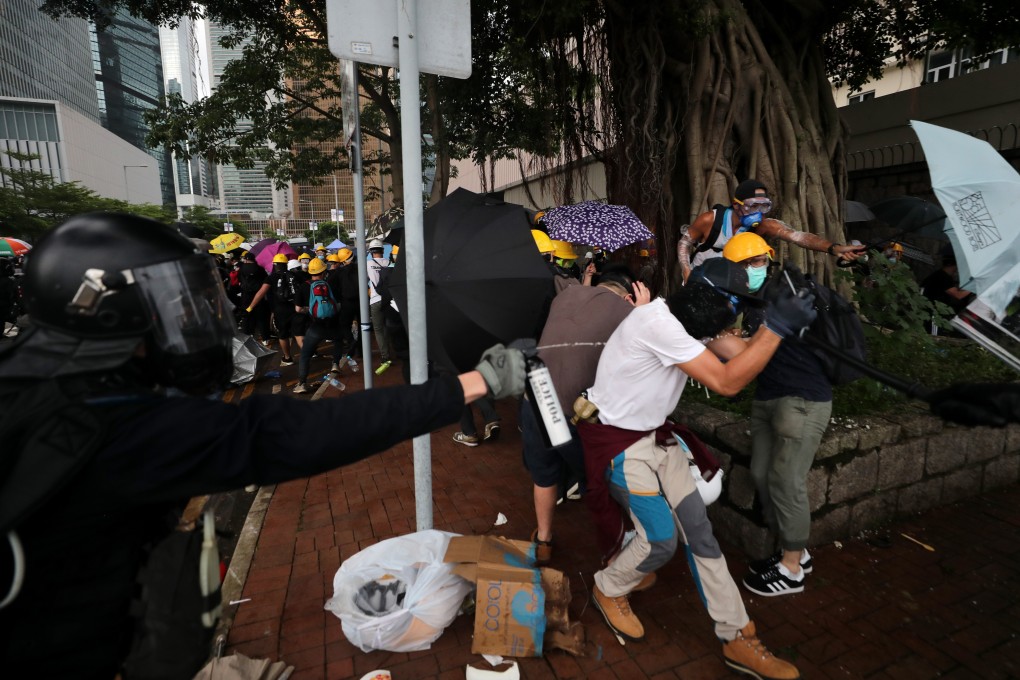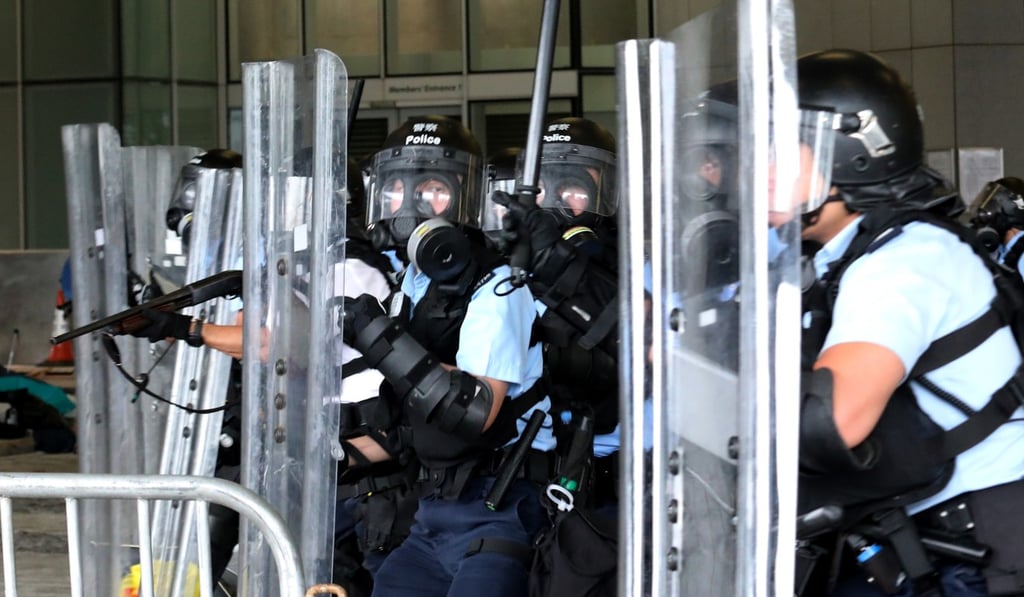Police roll back on categorisation of Hong Kong protests as a riot, with only those who threw bricks or used metal poles now likely to face most severe charges
- Police commissioner Stephen Lo says he had merely used the term ‘rioting’ to refer to protesters who displayed violent behaviour outside Legislative Council
- Lo also reveals that of 32 people arrested since Wednesday, only five are accused of rioting

Hong Kong police have backed down on their categorisation of last Wednesday’s clashes with anti-extradition bill protesters as a riot after an uproar over the government’s handling contributed to an estimated 2 million people taking to the streets on Sunday.
Commissioner of Police Stephen Lo Wai-chung said on Monday that only those who threw bricks and wielded metal poles against officers during the clashes would be accused of breaching anti-rioting laws.
Those who did not commit such violent crimes would not have to worry about rioting charges, Lo said.
Police had arrested 32 people since Wednesday, including five for rioting and 10 for violent crime.
A source said the remaining 17, who committed less serious crimes, were expected to be released unconditionally.
